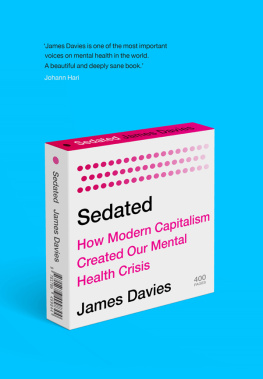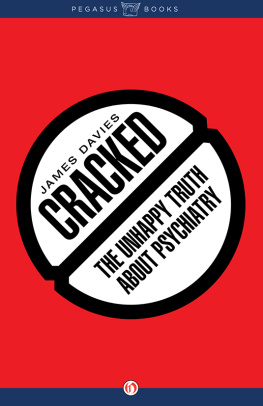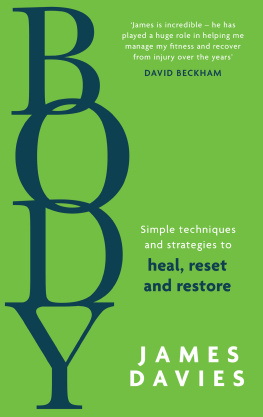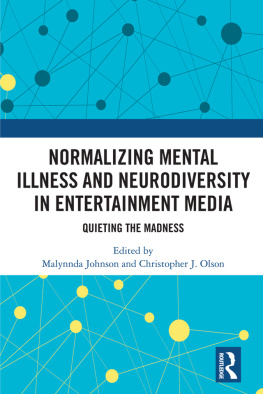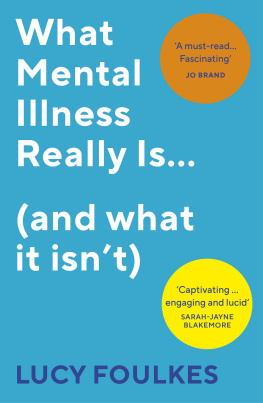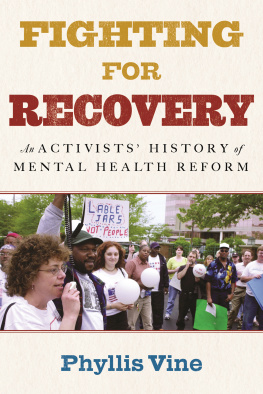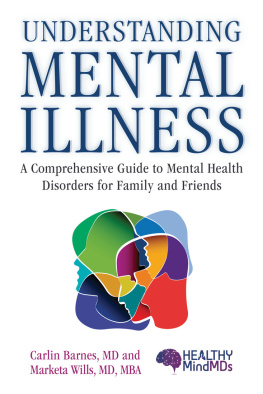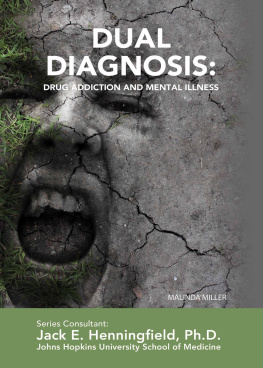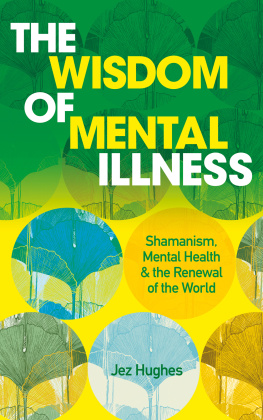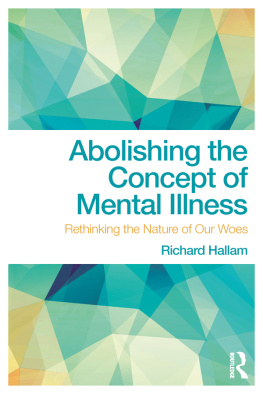Contents
Guide
Sedated
James Davies is a reader in medical anthropology and mental health at the University of Roehampton, with a PhD in social and medical anthropology from the University of Oxford. He is a qualified psychotherapist (having previously worked in the NHS) and is the co-founder of the Council for Evidence-based Psychiatry (CEP), which is secretariat to the UK All Party Parliamentary Group for Prescribed Drug Dependence.
He has been an expert drug adviser for Public Health England and has appeared on Today, PM, Newsnight, Sky News, BBC World News and various national and local radio stations. He is the author of Cracked: Why Psychiatry is Doing More Harm than Good.

First published in hardback in Great Britain in 2021 by Atlantic Books, an imprint of Atlantic Books Ltd.
Copyright James Davies, 2021
The moral right of James Davies to be identified as the author of this work has been asserted by him in accordance with the Copyright, Designs and Patents Act of 1988.
All rights reserved. No part of this publication may be reproduced, stored in a retrieval system, or transmitted in any form or by any means, electronic, mechanical, photocopying, recording, or otherwise, without the prior permission of both the copyright owner and the above publisher of this book.
10 9 8 7 6 5 4 3 2 1
A CIP catalogue record for this book is available from the British Library.
Hardback ISBN: 978 1 78649 984 4
E-book ISBN: 978 1 78649 986 8
Design and typesetting benstudios.co.uk
Printed in Great Britain
Atlantic Books
An imprint of Atlantic Books Ltd
Ormond House
2627 Boswell Street
London
WC1N 3JZ
www.atlantic-books.co.uk
CONTENTS
For my son, Oliver
INTRODUCTION
Medicine has progressed at an astonishing rate over the last forty years. Just consider the treatment of childhood leukaemia as an example. If in the late 1970s a child had contracted this heartbreaking disease, their chances of survival would have been around 20 per cent. But if a child contracts leukaemia today, their chances of survival are around 80 per cent. This means that outcomes in this area of medicine have improved by a full 300 per cent in the last four decades alone. And this wonderful feat is not only reserved for paediatric oncology, since impressive rates of improvement can also be found in almost every other area of medicine. I say almost every other area, as regrettably, there is one exception: the area of psychiatry and mental health.
In fact, in this area not only have clinical outcomes broadly flatlined over the last thirty years, but according to some measures they have actually got worse. Despite all this spending and wide coverage, the mental health of the country has not been improving over the last two decades. In fact, things appear to have gone from bad to worse. So why are successive governments consistently failing to act? Is this really all down to poor investment and sparse resources, or is there something more ominous about our whole approach to mental health that our politicians have been simply unwilling to confront?
In this book I will provide an answer, by revealing how, since the 1980s, successive governments and big business have worked to promote a new vision of mental health; one that puts at its centre a new kind of person: resilient, optimistic, individualistic and above all, economically productive the kind of person the new economy needs and wants. As a result of this shift, our entire approach to mental health has radically altered to meet these market demands. We define return to health as a return to work. We blame suffering on faulty minds and brains rather than on harmful social, political and work environments. We promote highly profitable drug interventions, which, if great news for big pharmaceutical corporations, are in the long term holding millions of people back.
I will show how this marketised vision of mental health has stripped our suffering of its deeper meaning and purpose. Consequently, our distress is no longer seen as a vital call to change or as anything potentially transformative or instructive. It has rather become, over the last few decades, an occasion for yet more buying and selling. Whole industries have thrived on the basis of this logic, offering self-interested explanations and solutions for the many pains of living. The cosmetics industry locates our misery in our ageing, the diet industry in our bodily imperfections, the fashion industry in our being pass, and the pharmaceutical industry in our so-called faulty brain chemicals. While each industry offers its own profitable elixir for emotional success, they all share and promote the same consumerist philosophy of suffering: your central problem is not that youve been mis-taught how to understand and engage with your difficulties (your ageing, your trauma, your sadness, your anxiety or grief), but the fact that you experience suffering at all something that targeted consumption can address. Suffering is the new bad, and failing to consume the right remedies is the new injustice.
This book tells the story of how, since the 1980s, this pro-market agenda has begun to harm both the UK and the West in general, turning our entire approach to mental health into something preoccupied with sedating us, depoliticising our discontent and keeping us productive and subservient to the economic status quo. By putting economic servitude before real individual health and flourishing, our priorities have become dramatically and dangerously misplaced, and more suffering, paradoxically, has been the unhappy result.
I have written this book to do my part in helping to correct this dominant yet misguided approach, and to discuss how we might put things right by understanding and solving the real roots of our mental and emotional distress. To do so, I have travelled widely to speak with leaders in the mental health and associated professions: senior politicians, public officials, civil servants and key academic thought leaders. I have become immersed in the relevant literature and archives, and have spent much time trawling the corridors of power in an attempt to help reform mental health from the inside. From these activities, Ive gained invaluable insight into the socio-economic causes of our current mental health crisis, the revelations of which, often strange and disconcerting, litter the pages of this book.
As you follow me through the coming chapters, you will encounter an array of harms caused by the very professions that purport to help us: from the perils of over-medicalisation to excessive psychiatric drug prescribing, growing stigma, rising disability, the overvaluation of ineffective therapies, and poor clinical results. Yet, most crucially, you will also see that these problems did not emerge in a vacuum, but have thrived under the new style of capitalism that has governed us since the 1980s, one favouring a particular type of thinking about mental health and intervention; one that has put the needs of the economy before our own, while anaesthetising us to the often psychosocial roots of our despair. As a result, we are rapidly becoming a nation sedated by mental health interventions that greatly overplay the help they bring; that subtly teach us to accept and endure, rather than to stand up and challenge, the social and relational conditions harming us and holding us back.

